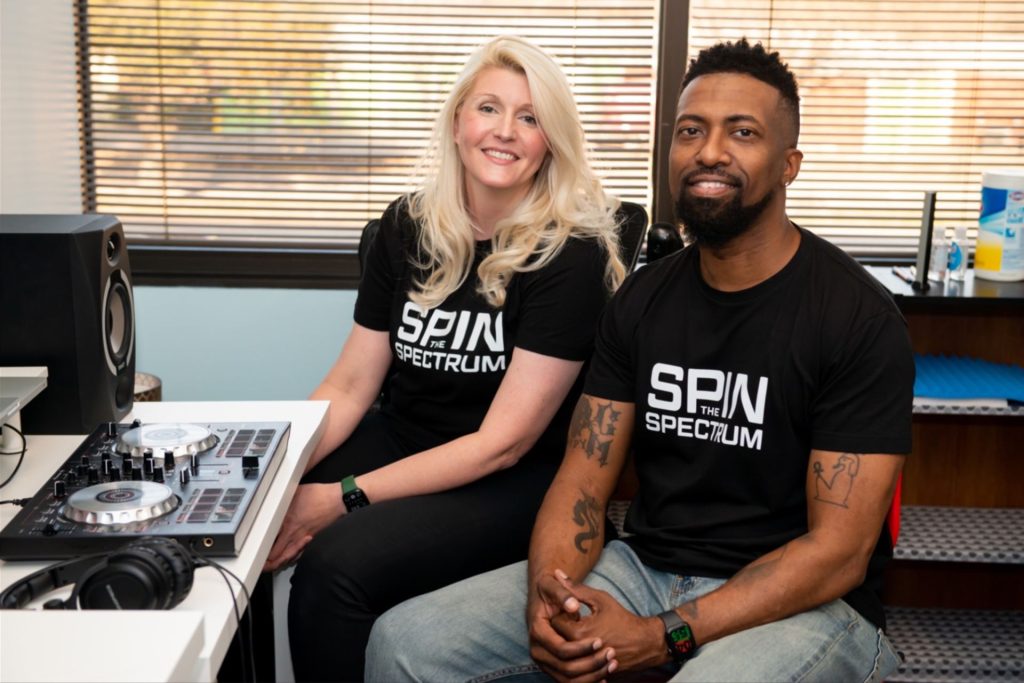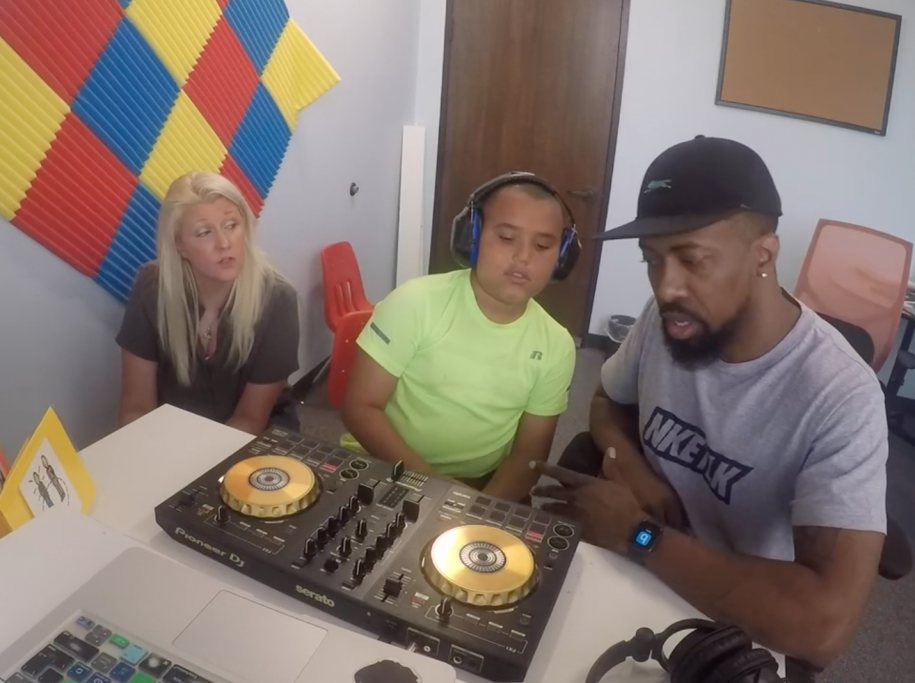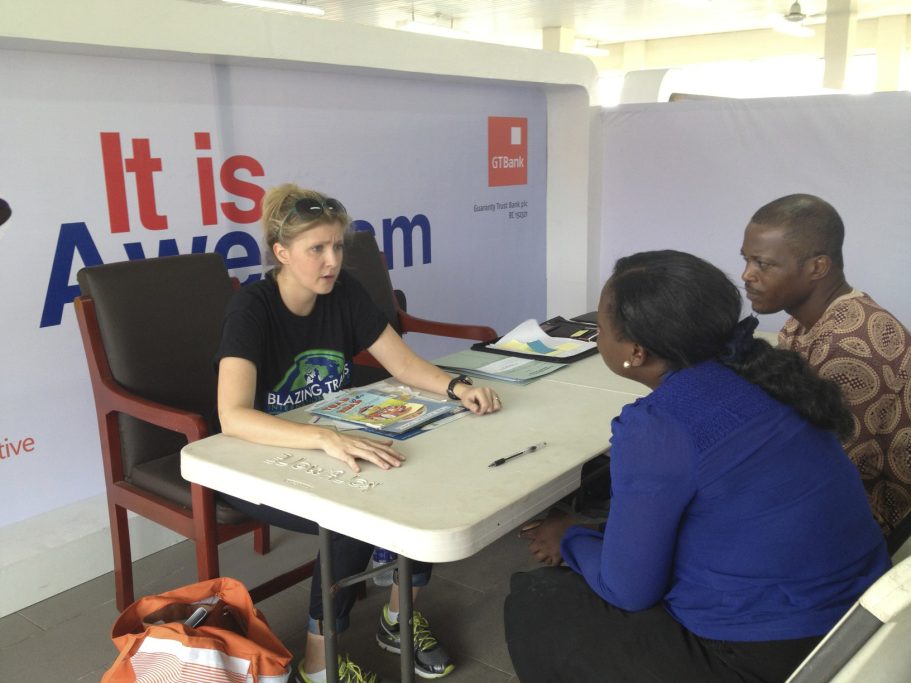Overcoming Communication Barriers with a DJ’s Turntable
By: Jeff Joiner | January 19, 2023

Courtney Willis BS’06, MS’12 is a speech and language pathologist who specializes in working with kids on the autism spectrum. When asked what’s her favorite part of the job, she won’t necessarily tell you it’s helping her patients find their voices, though that’s certainly up there. She’ll tell you it’s because she gets to be their very first friend.
“Working in pediatrics gives you this really rare opportunity that you usually only get in childhood and that’s to be a child’s very first friend,” said Willis. “When a kid has a communication disorder, when they can’t communicate with the people around them, it’s really hard for them to have that first friend. I get to be that friend.”
Willis graduated with a BS in speech language pathology and audiology and a master’s in communication disorders through the UT Dallas Callier Center for Communication Disorders in the School of Behavioral and Brain Sciences. In 2015, she founded her Dallas clinic, Speech Wings Therapy, adopting the name from Helen Keller who described her inability to communicate early in life as having speech wings that were weak and broken.
“Helen Keller talked about how she didn’t feel like a human being until she could really communicate,” Willis said. “My approach to working with kids is that they don’t need to be repaired; they’re not broken. But if their ability to communicate, if their speech wings are weak or broken and have lost all their grace and beauty, then we want to help them soar.”
Along with her traditional therapy clinic, Willis also co-founded a unique venture that teaches kids with speech and language disorders, including those with autism, how to be music DJs. Willis believes her school, Spin the Spectrum, launched in 2020, is the only program of its kind in the country that helps children facing communication barriers use music through DJing to help express themselves and regulate their emotions.
Willis started Spin the Spectrum with internationally known DJ Jay Clipp, founder of Keep Spinning DJ Academy in Dallas and a longtime friend of Willis and her husband. Willis approached Clipp with the idea for a school for kids with communication disorders after watching a documentary about Grandmaster Flash, a pioneering hip-hop DJ and rapper.
“In the documentary he said that the reason he got into DJing was because he was never great socially and preferred working on technology to being around people,” Willis said. “And he said he liked repetitive noises over and over and over again. I’m not diagnosing Grandmaster Flash, but that made me think about people on the autism spectrum who might also fit that description.”
Willis asked Clipp to join her in starting Spin the Spectrum and he immediately agreed. The partnership combines his expertise in teaching the techniques behind DJ music mixing and production with her child-directed, evidence-based approach to speech and language therapy to create something that anecdotally has shown amazing results in kids who experienced noticeable improvement in speech, language and even developmental skills.

“For kids on the autism spectrum, DJing is soothing, which is called emotional regulation,” Willis said. “These are people who experience the world from a sensory standpoint, and from a lot of different standpoints, in a very different way from you and me. If you’re a DJ, you’re in charge of your sensory environment and you’re expressing yourself through technology. These are repetitive and soothing to someone with autism.”
Willis said that to date there has been no research into the association between learning to DJ and improved speech and language skills for kids on the autism spectrum, but she would like to see that change because of what she has experienced with students in Spin the Spectrum.
Their success has included a student who advanced two grades in reading comprehension in two-and-a-half weeks with the only change being DJ school,” Willis said. “And, we have a kid with a developmental delay in hand-eye coordination and he is now within normal limits after doing DJ school for six months.”
The future of Spin the Spectrum is not only helping kids with language and developmental conditions, but it is also a potential vocational training program for people on the autism spectrum in music production and entertainment. Willis said they already have one older student who has been hired as a DJ for events in North Texas.
Word has spread about the success of students in Spin the Spectrum. Willis and Clipp are frequently asked to conduct training and educational programs throughout the country. Even before the DJ school was launched, the future partners were invited to Lagos, Nigeria, in 2013 for World Autism Day where Clipp performed as a DJ and Willis met with several hundred families over an 11-day period to diagnose children with speech and language disorders and provide families with guidance on therapies.

Willis said she was heartened by the outpouring of desire to help children in Africa where there is less common understanding about the underlying role that autism can play in behavioral issues. But with education, that can change, she said.
“The love that people feel for their children is universal,” Willis said.
Willis and Clipp are now considering ways to expand the Spin the Spectrum program and make it available and more accessible to children around the country. And Willis would like to collaborate on research efforts to collect data to confirm that what they’re seeing in the clinic. She hopes to be able to work more closely with the Callier Center at UT Dallas on research efforts.
“So far, neuroscience has not studied what happens when you manipulate music to create other forms of music,” Willis said. “But we know that this is linked to things like reading comprehension and executive function and other skills that we’ve seen improve in our kids. These are all areas that I would guess probably light up on an MRI machine if a DJ were scanned.”